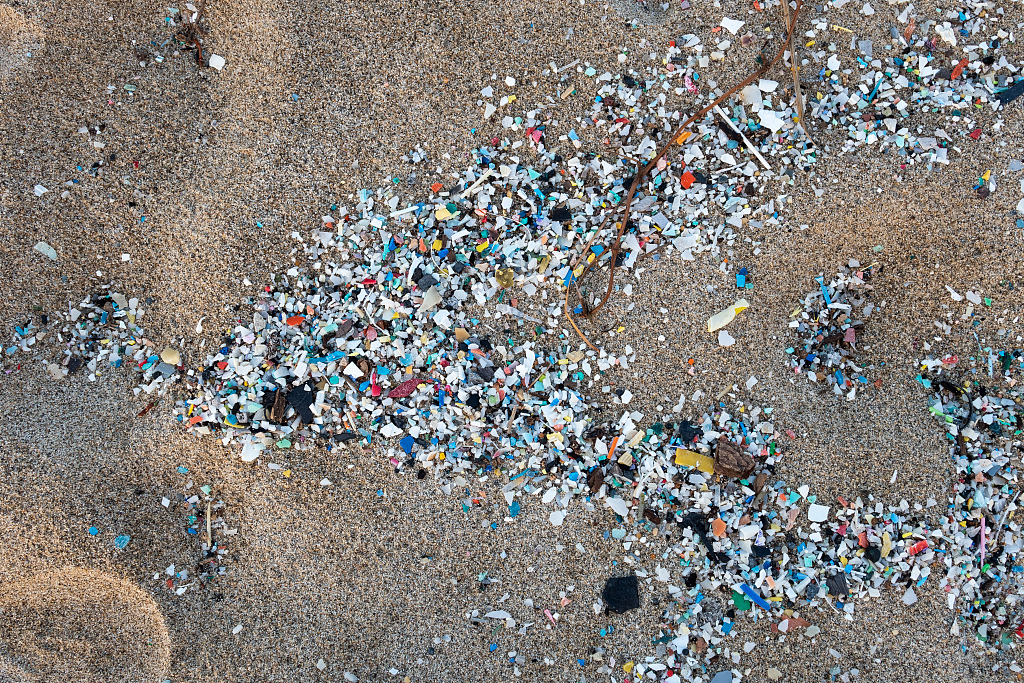Italian fishermen help recycle plastic waste


SAN BENEDETTO DEL TRONTO, Italy - On a moonlit night off Italy's coast, fishermen are hauling in the usual catch: cuttlefish, red mullet and plastic waste. But this time, they won't throw the rubbish back.
The trash instead is being collected, analyzed and, where possible, recycled in a monthlong experiment to try to provide a blueprint for cleaning up the sea.
"A lot of the fishermen used to throw the rubbish back into the sea, because the law says they can't bring it to land," said Eleonora de Sabata, coordinator for Clean Sea Life, which runs the project.
"They're not authorized to carry waste. In ports there's nowhere to put this kind of waste and it's not clear who should dispose of it."
With luck, that dilemma will not be an issue for around 40 fishing boats based near the Adriatic Sea resort of San Benedetto del Tronto that are taking part in the initiative.
The fishermen have collected around a ton of waste a week for a month, of which 60 percent is plastic.
Each day, volunteers catalog and sort the smelly catch on the quay side.
Some is recycled, some is disposed along with household or industrial waste, but none goes back in the sea.
The project had been due to wrap up on Friday, the day before World Oceans Day, but has now been extended through the summer months.
Organizers hope it will offer waste management solutions that can be scaled up for the rest of Italy and beyond.
Much of the rubbish is single-use, such as bottles, plates and cutlery, but also includes old fishing and mussel farming nets and assorted random plastic objects, from medical products to fax machine parts.
Fisherman Claudio Uriani, 62, sorts the catch into different buckets, ready to be sold at market.
The most voluminous species is the plastic.
"Let's say we didn't always collect it. There didn't used to be anyone on land to take the plastic," said Uriani, who's been fishing since 1972.
"If the fish eat plastic, they get sick, and so we also can get sick."
The Mediterranean Sea faces the additional problem of being a virtually closed body of water surrounded by dense human populations.
A study by the peer-reviewed Public Library of Science, or PLOS, published in 2015 estimated that the Mediterranean contains 1,000-3,000 tons of floating plastic, with an unknown quantity on the seabed.
The Nile River delivers at least 1,500 tons of plastic into the Mediterranean annually, according to the PLOS study in 2015.
Sperm whales wash up regularly on Italian beaches, their stomachs full of plastic.
"The rubbish that ends up in the sea all comes from people, from lakes and rivers, it's essential to educate people that what they put in the water ends up in the sea," said harbor master Mauro Colarossi.
The pollution problem is not just about preventing plastics entering the food chain.
If a tin of paint is brought up in the nets from 100 meters below, the whole catch is tainted and must be thrown away.
"The problem is in the sea but the solution is and should be on land. There needs to be a political solution, we need to go from alarm to action," said De Sabata.
Agence France - presse

































